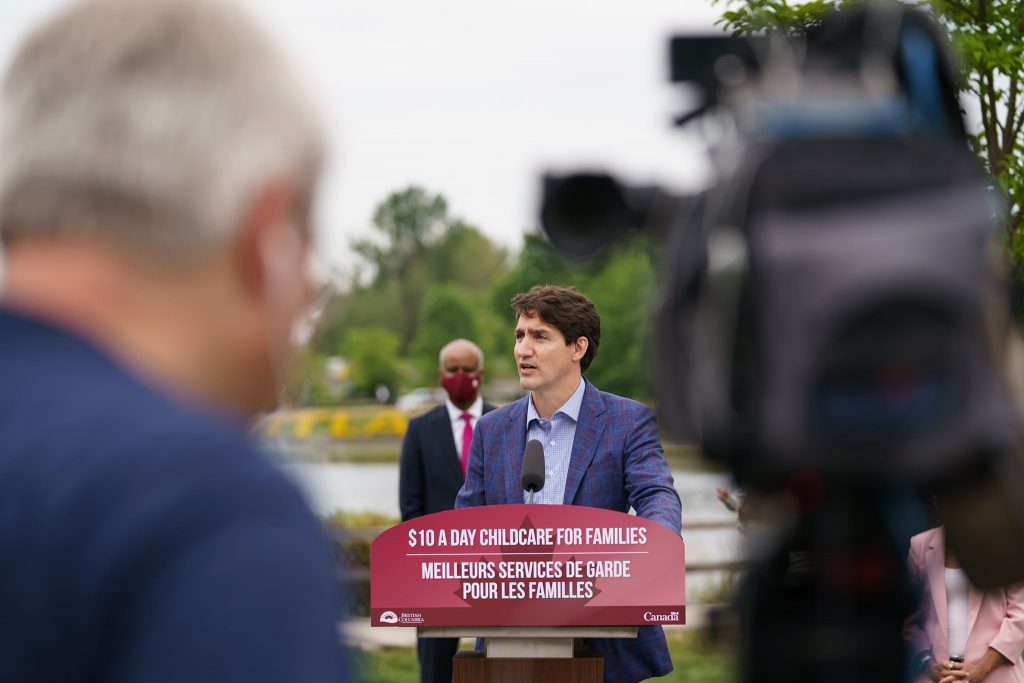Canada News
Rhetoric Check: Parliament wasn’t toxic — Justin Trudeau just wants a majority

Justin Trudeau is known for many things, but logical consistency isn’t really among them.
When Parliament recessed for the summer, the prime minister bemoaned the “toxic” and “obstructionist” conduct of the opposition, as if toxicity and obstructionism were somehow new to Parliament Hill. The minority Parliamentary environment, he intoned, was dysfunctional and the opposition was at best slowing down or at worst blocking his agenda outright.
Trudeau’s implication was clear — the Liberals need a majority government to carry through their vision for Canada. He was telegraphing his request for a dissolution of Parliament and a general election.
But now that he’s on the campaign trail, Trudeau wants Canadians to believe that over the past two years his minority government has had major if not historic achievements, notably in the areas of climate change, Indigenous reconciliation and improving conditions for the middle class.
In particular, Trudeau has pointed to his government’s handling of the COVID-19 pandemic through unprecedented borrowing and spending to keep Canadians and businesses afloat, most of which was approved by the very same Parliament that was dissolved owing to its alleged obstructionism.
A need to be accommodating
In reality, the opposition parties have been relatively accommodating to the government by passing the most consequential fiscal policies in a generation — the byproduct of which is the largest federal budget deficit at 15 per cent of gross domestic product since the Second World War.
Trudeau also says he needs a new mandate for his “build back better” agenda — to seize the “window of political opportunity,” to quote Deputy Prime Minister Chrystia Freeland. He says he wants to embark upon the most important general election since 1945, drawing a comparison between post-war reconstruction and the Liberal’s post-pandemic agenda.
Read more: Rhetoric Check: Historically, how important is the 2021 Canadian election?
A more appropriate analogy, however, is 1943, when the tide had turned in favour of the Allied powers during the Second World War, yet there were still two years of fighting ahead before victory could be declared — which is likely what it will take before the COVID-19 pandemic is behind us too.
The truth about why the election was called is far less grandiose than Trudeau would have us believe. It’s happening now for one simple reason — to secure a majority government for the Liberals, thereby doing away with the accountability, stresses and inconveniences inherent in minority Parliaments.
An insider’s view
I have had the privilege of working for cabinet ministers in both majority (1993-2003) and minority (2004-06) governments. Put simply, for politicians and their staff, minorities are much more work and stress, and a lot less fun. The prevailing view inside the government tends to be the sooner the minority is put to bed in favour of majority rule, the better.
In minority Parliaments, the government must be on the lookout constantly for common ground — usually with an opposition party that it can typically barely tolerate — and practise the art of compromise, including accepting amendments to its legislation. This is hard work, time-consuming and sometimes demoralizing.
I remember, for example, when the Paul Martin minority government suffered the indignities of negotiating the 2005 budget with its mortal enemy, the New Democratic Party, ultimately making nearly $5 billion in concessions to the NDP to secure the budget’s passage.
Minority governments also typically feel the need to listen to and accommodate “stakeholders” (otherwise known as special interests) beyond what is done in majority situations. This, too, is time-consuming, challenging and often frustrating for ministers and their staffs.
In minority Parliaments, most House of Commons committees are not controlled by the government. This can lead to inconvenient if not highly damaging studies, investigations and inquiries into government conduct (witness the WE scandal hearings last year, and the SNC-Lavalin scandal hearings the year before).
Probes like these would never happen in a majority Parliament where government members chair and dominate committees and set their agenda in line with what the prime minister wants.
Travel curtailed
Ministerial and backbench MP travel — one of the fun parts of the job — is significantly curtailed in minority Parliaments, where “all hands on deck” in the House is the basic philosophy.
I once had to cajole two opposition MPs to accompany the minister of national defence on an important foreign trip because the Prime Minister’s Office made the trip contingent upon bringing the opposition along to balance out the numbers in the House.
In short, to state the obvious, minority governments are much more accountable — for legislation, policy and operations — than majorities are. Those added accountabilities, and the ever-present threat of a loss of confidence (and a snap election), produces more work for and added stress on the prime minister, the cabinet and staff.
It’s this environment of heightened accountability, a degree of instability, and most especially the inability of the government to do what it wants with impunity, that led Trudeau to ask the Governor General for a general election — plus public opinion polls that showed the Liberals were getting close to majority government support levels.
Nothing more, nothing less.
Eugene Lang, Lecturer/Adjunct Professor, School of Policy Studies, Queen’s University, Ontario
This article is republished from The Conversation under a Creative Commons license. Read the original article.





















